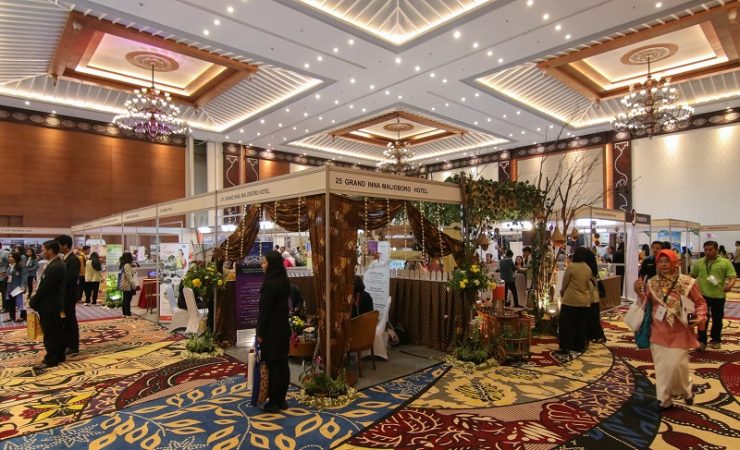INDONESIA’S Meeting, Incentive, Conferences & Exhibitions (MICE) industry business are included in the sectors that are strongly affected by the COVID-19 pandemic. Many events in various countries had to be postponed or even canceled because of the virus.
According to Ministry of Tourism & Creative Economy said that the potential loss of the MICE sector due to the COVID-19 pandemic ranged from IDR2.69 trillion to IDR6.94 trillion. As a result, about 96.43% of events in 17 provinces had to be postponed, and 84.20% were canceled. The impact other than the rupiah is the presence of more than 90,000 creative industry workers who were affected.
With the existence of this pandemic, businesses in the MICE industry must think of ways to survive. Minister of Tourism and Creative Economy Wishnutama had suggested that MICE be done online.
“MICE online still has advantages but this online cannot continue because many of our MICE players are offline. We are optimistic that online must still exist but do not replace it offline,” MICE Director of the Ministry of Tourism, Iyung Maruroh said in the Virtual.
He added, all types of MICE activities were affected by the corona virus pandemic in a balanced way. Industry players are moving fast in order to withstand worse impact, especially in terms of arranging event management, and intensifying the recommended delay compared to cancellation. Based on data from the International Congress and Convention Association (ICCA) World Member Update as of 27 February 2020, at least 12 events were postponed in Indonesia, and two were canceled.
A post-loss MICE sector recovery strategy is needed due to the COVID-19 pandemic. In addition to compiling the protocol for implementing MICE activities after the pandemic and developing a national MICE development strategy, site inspection needs to be carried out to see the readiness of the MICE destination.
Equally important is the effort to re-activate the domestic market so that it will again start carrying out MICE activities in destinations that are ready. It is intended that the economic turnover gradually recovers.
“Including, we encourage government and corporate meetings so that more in the country. We also roadshow to convince associations, industries and organizers of MICE activities regarding Indonesia’s readiness to become a safe and comfortable MICE destination,” Iyung noted.
The existence of MICE has some added value to the economy. Not only contributing to the development of public infrastructure, MICE also forms a positive image for the country’s tourism industry.
Referring to the 2014 Global Business Travel Association (GBTA) data, MICE’s position is very competitive because at least 50% of world travel transactions of US$1.18 trillion are business trips. Positive spending is also owned by MICE-based tourists. Based on the International Congress & Convention Association (ICCA) in 2018, MICE tourists have the ability to spend US$2,000 per person per day. This figure is 7 times the ability of ordinary tourists to spend. In addition, this MICE tourist has an average stay of five nights.
“And tourism, including the MICE sector, is indeed the number one affected by the COVID-19 pandemic, if the others are not as big as tourism,” said Wita Jacob as Chairman, Indonesia General Manager of the Hotel Association, Jakarta Chapter.
Based on ICCA data, in 2018, Indonesia’s position in the global arena based on the number of meetings ranked 36th with 122 meetings, a year later the ranking dropped to 41st place with 95 meetings. Ranking last year was the same as the 10th rank in Asia-Pacific.
At present, there are at least seven main destinations for foreign tourists with business travel destinations, namely Bali, Bandung, Jakarta, Makassar, Medan, Surabaya and Yogyakarta. The highest number of visits by air market to DKI Jakarta (57.8%), the rest is spread in six other regions.
In 2017, the event industry in Indonesia affected US$7.8 billion in total GDP and created around 278,000 jobs. Unfortunately, the COVID-19 pandemic affected 90% of event cancellations or delays until the end of 2020.
“If from the UNWTO expert panel survey, more domestic travel will recover from the beginning of July while international travel will begin in the final quarter of this year until early 2021,” Mulya said.
The magnitude of the impact of MICE’s business on infrastructure development acceleration, for example, can be seen from the renovation of I Gusti Ngurah Rai Airport. In 2018, Ngurah Rai Airport will become the main supporting infrastructure of the IMF Conference which will have a direct impact on the economy reaching IDR5.5 trillion. [sources/photo special]
















